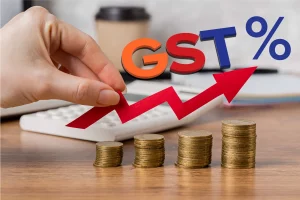 The Supreme Court on Wednesday told the Centre that there is no need for making arrests in all Goods and Services Tax (GST) cases and that it can be done only if there is credible evidence and tangible material to prove culpability. A bench of Justices Sanjiv Khanna, MM Sundresh and Bela M Trivedi, which reserved its verdict on a batch of pleas challenging the constitutional validity and interpretation of provisions relating to the Customs Act and Goods and Services Tax Act, said the power of arrest is different from necessity of arrest.
The Supreme Court on Wednesday told the Centre that there is no need for making arrests in all Goods and Services Tax (GST) cases and that it can be done only if there is credible evidence and tangible material to prove culpability. A bench of Justices Sanjiv Khanna, MM Sundresh and Bela M Trivedi, which reserved its verdict on a batch of pleas challenging the constitutional validity and interpretation of provisions relating to the Customs Act and Goods and Services Tax Act, said the power of arrest is different from necessity of arrest.
“The legislation does not say that for completion of investigation you need to be arrested. It is not the object of the legislation. It is not necessary for you to arrest in each and every case of GST. It has to be based on some credible evidence and tangible material,” the bench told Additional Solicitor General SV Raju.
Raju said arrests are mostly made during the investigation as there can be no arrest after the probe in a case has been completed.
The top court said while there were instances of high-handedness by the GST authorities, there were also cases of wrong-doing on the part of tax payers, and it will take into account all these aspects when giving its decision.
On May 9, the top court had told the Centre that any arrest under the GST Act should not be on mere suspicion but based on cogent material and in adherence to proper procedure.
The court had earlier directed the Centre to not use “threat and coercion” during search and seizure operations against traders for recovery of GST and instead persuade them to clear the dues voluntarily.
On May 2, the top court had asked the Centre to furnish details about the issuance of notices and arrests effected under the provisions of the GST Act, saying it may interpret the law and lay down appropriate guidelines to avoid harassment of citizens by depriving them of their liberty.
It voiced concern over the “ambiguity” in section 69 of the GST Act that deals with the powers of arrest.


